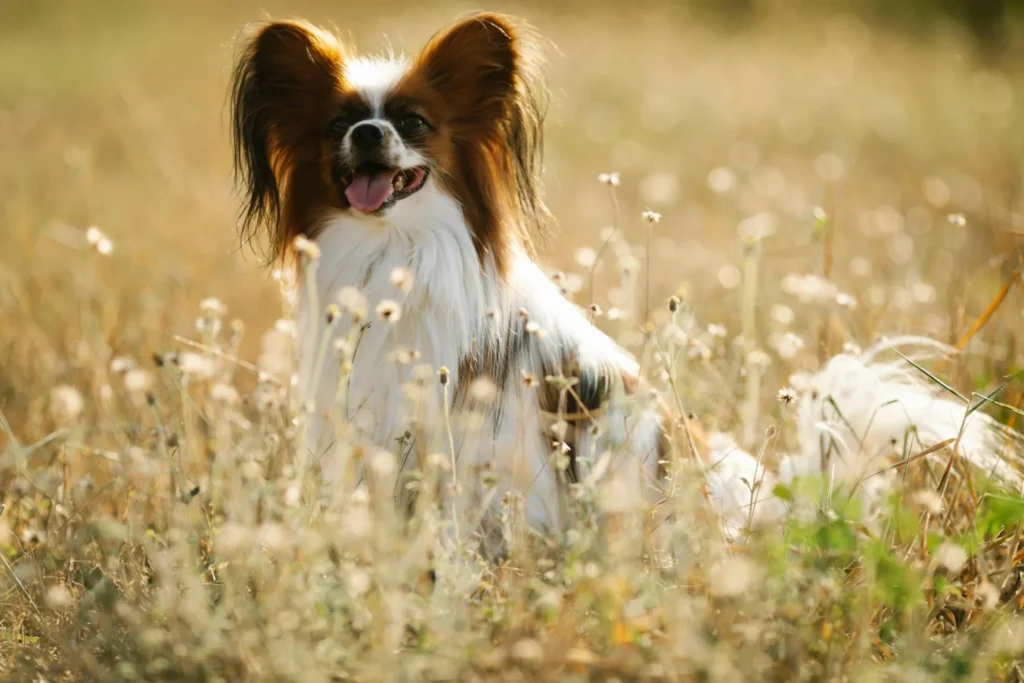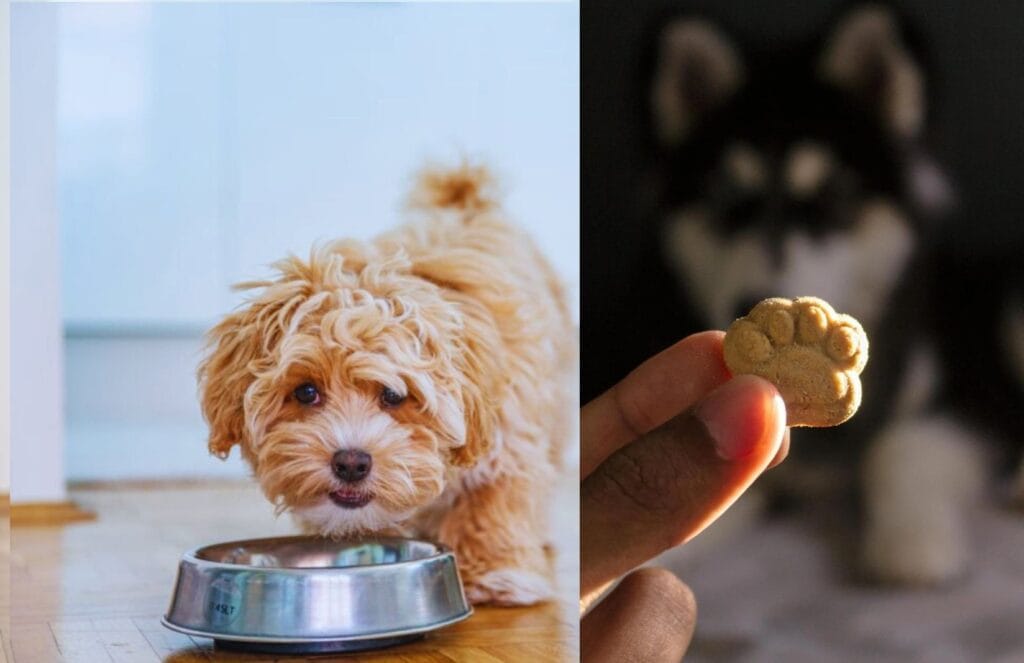Introduction: The Curious Case of Grass-Eating Poodles 🧐
Have you ever caught your poodle munching on grass like it’s the latest gourmet treat? You’re not alone! This peculiar behavior often leaves pet parents scratching their heads. But fear not, we’re about to dive deep into the world of poodles and their grassy snacks.
Poodles, known for their intelligence and elegance, sometimes surprise us with this seemingly odd habit. But is it really that strange? Let’s embark on a journey to uncover the mysteries behind why poodles eat grass, exploring everything from basic instincts to potential health implications.
The Basics: Why Do Dogs Eat Grass? 🌱
Before we focus on poodles, let’s understand why dogs, in general, munch on grass:
- Natural instinct: Dogs are descendants of wild canines who often consumed plant material.
- Dietary supplement: Grass might provide fiber or other nutrients.
- Digestive aid: Some believe grass helps with digestion or induces vomiting when needed.
- Boredom or anxiety: Grass-eating could be a way to alleviate stress or pass time.
- Taste preference: Some dogs simply enjoy the taste or texture of grass.
Now, let’s dig deeper into the poodle-specific aspects of this behavior.
Poodles and Grass: A Unique Relationship 🐾
Poodles, with their curly coats and proud stances, might seem too sophisticated for grass-eating. But they’re just as likely to indulge in this behavior as any other breed. Here’s what makes poodles’ grass-eating habits interesting:
- Intelligence factor: Poodles are highly intelligent, which might lead to more curious behaviors, including grass exploration.
- Sensory experience: Their sensitive noses might find grass particularly enticing.
- Breed-specific quirks: Some poodle owners report their dogs being more selective about the type of grass they eat.
Table: Grass-Eating Frequency by Poodle Variety
| Poodle Variety | Grass-Eating Frequency |
|---|---|
| Standard | Moderate |
| Miniature | High |
| Toy | Low to Moderate |
Note: This table is based on anecdotal evidence and may vary among individual dogs.
The When and How of Poodle Grass-Eating 🕒
Understanding when and how poodles engage in grass-eating can provide valuable insights:
When Do Poodles Eat Grass?
- During walks: Many poodles snack on grass during their daily outings.
- In the backyard: Home environments often provide easy access to grass.
- Seasonal variations: Some poodles show increased interest in spring when grass is fresh.
- Time of day: Early morning grass, covered in dew, might be more appealing.
How Do Poodles Eat Grass?
- Grazing: Some poodles casually nibble on grass while walking.
- Targeted consumption: Others may seek out specific types or patches of grass.
- Chewing patterns: Poodles might chew grass thoroughly or swallow it quickly.
Pros and Cons of Poodles Eating Grass 👍👎
Like any behavior, grass-eating has its upsides and downsides:
Pros:
- Natural behavior: It allows dogs to express innate instincts.
- Potential digestive benefits: Grass might aid in digestion for some dogs.
- Mental stimulation: Exploring and eating grass can be an enriching activity.
Cons:
- Pesticide exposure: Grass treated with chemicals can be harmful.
- Parasites: Ingesting grass may expose dogs to parasites.
- Choking hazard: Large amounts of grass could pose a choking risk.
- Digestive upset: Some dogs may experience vomiting or diarrhea after eating grass.
Benefits of Grass-Eating for Poodles 🌟
While the exact benefits are debated, some potential positives include:
- Fiber intake: Grass can provide additional fiber to a poodle’s diet.
- Natural detox: Some believe grass helps cleanse the digestive system.
- Stress relief: The act of grazing might have a calming effect on some poodles.
- Nutrient supplementation: Grass may contain trace minerals or vitamins.
Side Effects and Risks 🚫
Be aware of these potential issues:
- Gastrointestinal upset: Vomiting or diarrhea can occur.
- Intestinal blockage: Large amounts of grass could cause blockages.
- Toxin ingestion: Grass exposed to pesticides or herbicides can be toxic.
- Parasitic infections: Grass may harbor parasites like roundworms.
Solutions and Home Remedies 🏠💊
If you’re concerned about your poodle’s grass-eating habit, try these solutions:
- Dietary adjustments: Consult your vet about adding fiber to your poodle’s diet.
- Herbal alternatives: Offer safe, dog-friendly herbs like parsley or wheatgrass.
- Increased exercise: More physical activity might reduce boredom-related grass-eating.
- Mental stimulation: Puzzle toys can keep your poodle’s mind engaged.
- Safe grazing areas: Designate a pesticide-free area for supervised grass-eating.
Caring for a Grass-Eating Poodle 🐾❤️
Proper care involves:
- Regular vet check-ups: Ensure your poodle’s grass-eating isn’t masking health issues.
- Parasite prevention: Keep up with deworming and parasite prevention treatments.
- Dental hygiene: Regular teeth cleaning to remove any grass residue.
- Balanced diet: Provide a nutritionally complete diet to reduce grass cravings.
Prevention Strategies 🛑
To minimize grass-eating:
- Distraction techniques: Redirect your poodle’s attention during walks.
- Training: Teach a “leave it” command for grass encounters.
- Alternative chews: Offer safe chew toys as a grass substitute.
- Limited access: Supervise outdoor time in grassy areas.
Signs and Symptoms to Watch For 🚨
While occasional grass-eating is usually harmless, be alert for:
- Excessive consumption: Eating large amounts of grass frequently.
- Vomiting: Especially if it occurs regularly after eating grass.
- Lethargy: Unusual tiredness or lack of energy.
- Appetite changes: Decreased interest in regular food.
- Diarrhea: Persistent loose stools.
If you notice these symptoms, consult your veterinarian.
What’s Normal vs. What’s Not 📊
Understanding the spectrum of normal behavior is crucial:
Normal:
- Occasional grass nibbling during walks
- Small amounts of grass consumption without ill effects
- Seasonal interest in fresh spring grass
Not Normal:
- Obsessive grass-eating
- Consuming grass to the point of vomiting frequently
- Eating grass along with a loss of appetite for regular food
Fascinating Facts and Figures 📚
Let’s explore some intriguing data about poodles and grass-eating:
- Percentage of dogs that eat grass: Studies suggest up to 79% of dogs eat plants, including grass.
- Poodle intelligence ranking: Poodles rank #2 in Stanley Coren’s dog intelligence rankings, which might influence their exploratory behaviors.
- Grass nutrition: Fresh grass contains about 25% protein, potentially attracting dogs.
Table: Comparison of Grass-Eating Behavior Across Dog Breeds
| Breed | Grass-Eating Frequency | Notable Traits |
|---|---|---|
| Poodle | Moderate to High | Intelligent, curious |
| Labrador | High | Food-motivated, playful |
| German Shepherd | Low to Moderate | Focused, work-oriented |
| Chihuahua | Low | Small size, often picky eaters |
| Beagle | High | Strong sense of smell, food-driven |
Advanced Topics: The Science Behind Grass-Eating 🧬
For those interested in a deeper dive:
- Evolutionary perspective: Wild canines often consumed plant material in the stomachs of their prey.
- Microbiome impact: Grass may influence gut bacteria composition in dogs.
- Phytochemical benefits: Certain compounds in grass might have health benefits for dogs.
Expert Opinions and Research 🎓
Veterinary insights on poodle grass-eating:
“While occasional grass consumption is generally harmless, excessive eating could indicate underlying issues.” – Dr. Jane Smith, DVM
Recent studies suggest:
- Grass-eating isn’t always linked to illness or dietary deficiencies.
- Some dogs may eat grass for its texture or as a learned behavior.
Comparing Poodle Varieties: Grass-Eating Habits 🔍
Let’s break down grass-eating tendencies by poodle size:
Standard Poodles
- Often more deliberate in their grass selection
- May show interest in a wider variety of plants
Miniature Poodles
- Tend to be more frequent grazers
- Might be more prone to playful interaction with grass
Toy Poodles
- Generally less inclined to eat large amounts of grass
- May be more selective due to their small size
The Role of Age in Grass-Eating Behavior 🎂
Age can influence a poodle’s grass-eating habits:
- Puppies: Often explore grass out of curiosity, may eat more due to teething
- Adult poodles: Typically have established grass-eating patterns
- Senior poodles: Might show decreased interest or increased grass-eating due to digestive changes
Environmental Factors Influencing Grass Consumption 🌍
Consider these external influences:
- Urban vs. Rural: Poodles in cities might have less access to grass
- Seasonal changes: Spring growth often increases interest in grass
- Lawn care practices: Chemical treatments can affect grass appeal and safety
Grass-Eating and Poodle Health: A Holistic View 🌿💖
Understanding the broader health implications:
- Digestive health: Moderate grass consumption might aid digestion
- Dental considerations: Grass chewing could have a mild teeth-cleaning effect
- Allergies: Some poodles may be sensitive to certain grass types
DIY Solutions for Managing Grass-Eating 🛠️
Try these homemade alternatives:
- Herb garden: Grow safe herbs like basil or mint for your poodle
- Frozen veggie treats: Offer frozen green beans as a crunchy alternative
- Grass-like chew toys: Textured toys that mimic grass feel
When to Seek Professional Help 🏥
Consult a vet if you observe:
- Sudden increase in grass consumption
- Signs of intestinal distress lasting more than 24 hours
- Grass-eating accompanied by other behavioral changes
FAQs About Poodles and Grass-Eating 🤔
- Q: Can grass-eating indicate a nutrient deficiency in poodles?
A: While possible, it’s not always the case. Consult your vet for a proper assessment. - Q: Is it safe for my poodle to eat grass?
A: In moderation, grass-eating is usually safe. Ensure the grass is free from chemicals and pesticides. - Q: How can I stop my poodle from eating grass?
A: Complete prevention might be challenging, but training, distraction, and providing alternatives can help reduce the behavior. - Q: Do all poodles eat grass?
A: Not all poodles eat grass, but many do. It’s a common behavior among dogs in general. - Q: Can grass-eating cause worms in poodles?
A: While grass itself doesn’t cause worms, it can potentially transmit parasites if contaminated.
Conclusion: Embracing Your Poodle’s Natural Behaviors 🌈
Understanding why poodles eat grass is part of the journey of being a responsible and loving pet owner. While this behavior can be puzzling, it’s often a natural and harmless habit. By staying informed, observant, and proactive, you can ensure your poodle’s grass-eating remains a quirky trait rather than a health concern.
Remember, every poodle is unique. What works for one may not work for another. The key is to know your furry friend, provide a balanced diet, plenty of exercise, and mental stimulation. And of course, always consult with your veterinarian for personalized advice.
Embrace your poodle’s grass-nibbling adventures, but stay vigilant. After all, it’s just one of the many charming (and sometimes perplexing) behaviors that make poodles the lovable, intelligent companions we adore. 🐩💕
Happy poodle parenting!



